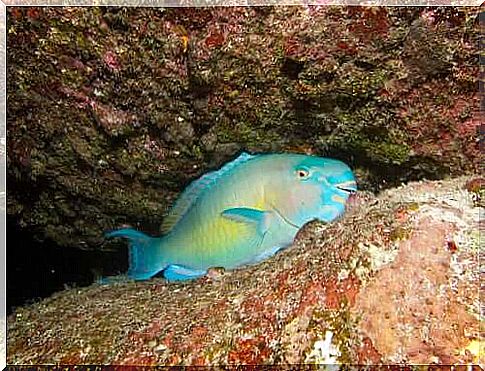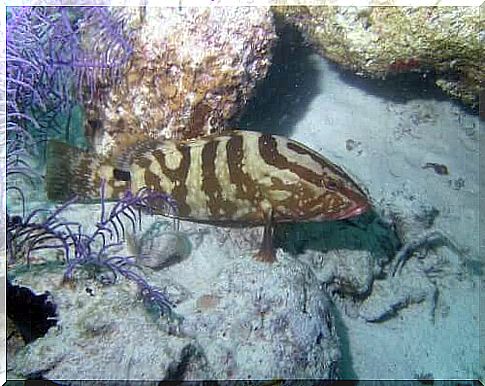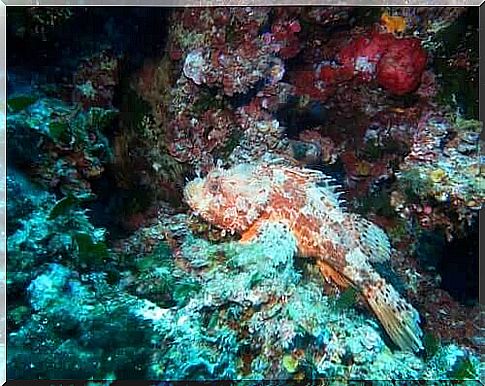Do Fish Sleep With One Eye Open?

Rest in fish is a subject on which little reliable data is known, so much so that one often wonders if fish can sleep. The answer is yes, and most fish sleep, but since they don’t have eyelids, they don’t close their eyes when they sleep like mammals do. So fish are said to sleep with one eye open.
How do fish sleep?
Several scientific researches have shown that sleep in fish has a restorative and energy saving function. Fish rest indiscriminately during the day and night, but their rest in fish works differently than in vertebrates.
The fish, even when resting, always remain alert to dangers. We can say that fish sleep with one eye “open” for this very reason.
As with everything, there are exceptions. For example, the fish Bodianus rufus sleeps so soundly that we can lift it to the surface of the water before eliciting a response.
Another rather curious example is that of some species of parrotfish, which raise their mucus barrier to protect themselves from parasites, avoid predators and be able to sleep in peace.

Sleep is a universal need
The cyclical transitions of sleep activity are subject to control mechanisms by the brain. Although there is no doubt that rest is essential for the physiological balance of the body, we cannot say that there are specific mechanisms by which sleep affects physiology.
Evolutionary studies show that cold-blooded animals do not experience actual sleep-wake cycles, but rather cyclical transitions between rest and activity that are determined by environmental factors.
Until now, experts have performed EEG analyzes on animals without a developed cerebral cortex – such as turtles, lizards and fish – without being able to find any patterns of brain activity that could be associated with the resting state.
The function of sleep in processing images
Scientific studies have shown that brain activity for processing visual information is greater than that for processing other modalities of sensory information.
At the dawn of the development of life, animals that did not sleep developed complex behaviors that required great vision.
The processing of this information began to saturate neuronal capacity during wakefulness and, as a result, sleep activity cycles would develop. Therefore, sleep may have evolved as a mechanism to “reset” brain circuits.

Fish that sleep and fish that do not sleep
Scientists have a theory that fish that don’t sleep don’t need it, because they don’t have to process visual information. According to this theory, the blind fish that live in caves in the deep sea never sleep.
Other sleepless fish that possess focal vision, such as tuna and shark, live in open water ocean habitats, with very few visual characteristics to record. As a result, their brains, collecting little visual data, don’t need to rest to process them.
How to know if a fish is sleeping
- Fish rest at night or during the day, it makes no difference to them, but some species look for rocks or plants to protect themselves while they rest.
- When sleeping, fish place their rear or bottom fins on the sea floor. The fin then acts as a kind of anchor, which prevents the sea current from dragging them away.
- It may happen that the fish make noises to ward off predators. This is the case with the Roncador stearnsii, the snoring fish.
- They can rest at the bottom of the sea. From there, thanks to the swim bladder, they rise periodically to breathe without having to wake up.
- Some fish species are able to change the color of their scales during sleep, so that they are not as visible to potential predators during sleep.
Sleep is such a complex process that it must necessarily fulfill a vital function. If sleep has become so necessary at some point in evolution, it means that it offers numerous benefits to species. Not surprisingly, in nature there are many more animals that sleep than those that always stay awake.









